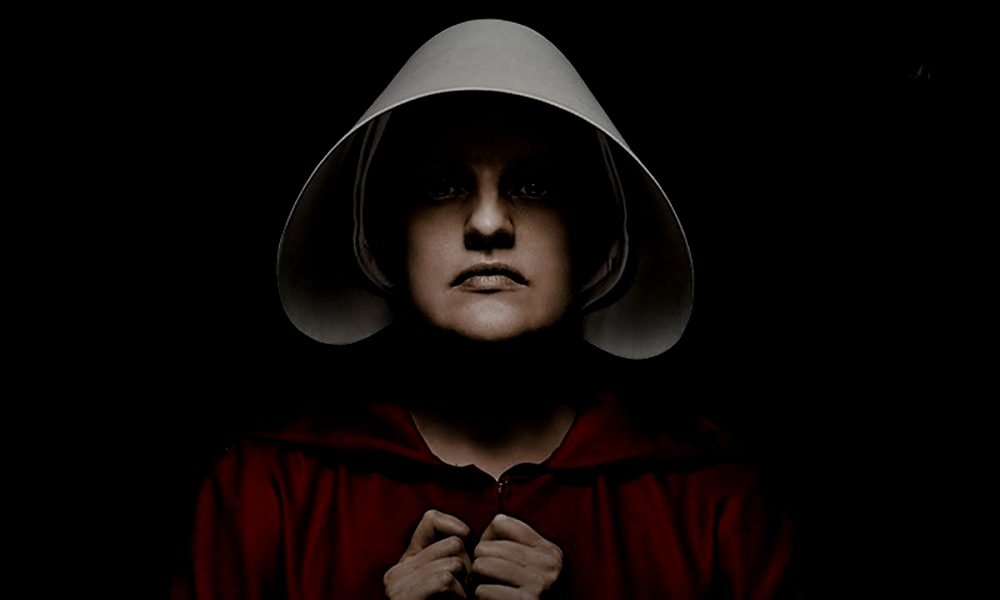The Handmaid’s Tale

Dystopian Fiction
“Knowing was a temptation. What you don’t know won’t tempt you.”
What is a Dystopia?
Derived from the Greek dys (“ill” or “bad”) and topos (“place”), the word Dystopia literally means “Bad Place”.
A Dystopia is normally an imagined state or society in which great suffering or injustice occurs, typically one that is totalitarian by nature and in which information, independent thought, and freedom are restricted, censored, or ignored by the masses.
An Iconic Dystopian Fiction—The Handmaid’s Tale summary
The Republic of Gilead, a totalitarian and theocratic state that has replaced the United States of America, forces women in the form of Handmaids to have ritualized sex with elites to bolster the dangerously low reproduction rates of the country.
Following Offred, her struggle and story takes place across a variety of timelines—past, present, and the unknown future of the epilogue.
Seen as nothing more than a walking uterus, Offred fights to see herself as a person as her individual value is greatly diminished under this dystopian, theocratic regime. As she recounts her earlier life with her mother, friend, and husband, Offred unearths the roots of male domination and female self-determination that existed even then.
The novel contrasts Offred’s passivity with the active resistance of other women like her mother in feminist movements like “Take Back the Night” marches, her friend’s escape from the totalitarian system, and the women of a rebel group known as Mayday.
In an attempt to preserve her own identity Offred simply preserves her memories by faithfully witnessing what happens to her as an individual, suggesting that this minimal resistance is all that can be expected of the most oppressed people—that her minute resistance has value.
The novel’s “climax” arrives when Offred gives in to the urge that has been most suppressed: sexual desire. From her forbidden desire for a particular man and the illegality of touching men in general to her personal loyalty to her former husband—which suggests another mild form of male control. Despite her fear and passivity, Offred’s submission to her desire suggests that powerful emotions cannot be entirely repressed.
The evidence of Offred’s passive resistance is in that of her book and personal record: The Handmaid’s Tale.
Atwood feared Religion would ruin us
The days where the fiction stayed in the books is in the past:
What is The Handmaid’s Tale about?
From the women’s bodies being used as political instruments and language as tool of power, to the causes of complacency and complicity, the deeply religious thematic elements are clearly Left leaning Liberal and Democratic rhetoric.
Published in 1985 in the wake of the sexual revolution—which laid the groundwork for society and culture to normalize sexual promiscuity—this novel a great Liberal irony. Theocratic institutions not only are far from the norm of today’s culture, the sexual urges that are promoted in society often metastasize to more radical and fringe behaviors like child porn and sex trafficking of minors. Prostitution is not empowering women but is rather is a line of work that attaches women to the strings of the sexual whims of society, and rather than seeing women as “walking uteruses” we see them as walking boobs, asses, and vaginas.
Margaret Atwood was right in fearing that religions would ruin us. However, rather than orthodox religions being the cause of totalitarian control, it is the Church of the Woke Socialists that are becoming the very evil they deplore. It’s a church that places a giant stigma on Motherhood, putting those women who do want to rear children (for religious purposes or otherwise) into a place of ostracization. This unorthodox faith pays tithes in the form of State sanctioned baby sacrifices to Moloch and utilizes slogans like “my body, my choice” as a phrase that the faithful, woke feminists use in their prayers and petitions.
This Dystopian Author was ahead of her time, and in a rather ironic fashion. Atwood’s novel—which is now a Hulu pop-culture staple—could have arguably moved us from a one theocratic dystopia to another very real totalitarian, American Marxist regime that rather than holding to “repressive values” propagates a pleasure-based value system that has no true honor in the sanctity of life and where radical feminism is allowed to flourish.
In both fact and fiction, Utopias will always propagate Dystopias.
Kawika Miles is an American dystopian author who indulges in conversations of faith, family, and freedom. As a long time patriot, Kawika understands that only liberty minded individuals can save the future from the dystopian nightmare it is tumbling down, protecting the sanctity of life and individual independence. Read his debut novel Saga of the Nine: Origins today!












